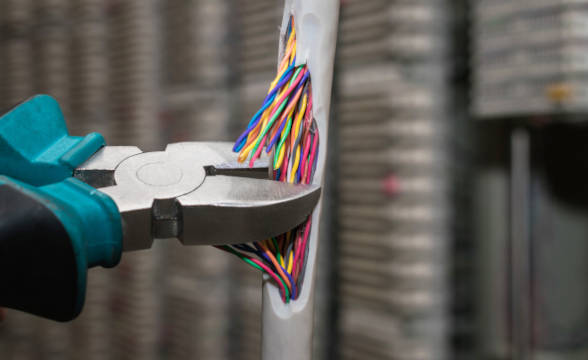Philippines senator Joel Villanueva introduced a new bill that would effectively ban all forms of online gambling in the country. The new Anti-Online Gambling Act aims to impose strict penalties on all individuals who use the internet for betting and wagering. Villanueva justified the loss of revenue with the rising social cost of gambling, drawing attention to the recent POGO scandals.
E-sabong Already Got Banned
2022 has been a tumultuous year for the Philippines gambling industry. Several high-profile scandals shook the public, resulting in increased government and regulatory scrutiny. The most recent case was the shutdown of two Philippine Offshore Gaming Operators (POGOs). Over 140 foreign workers were rescued from slave-like work conditions in a series of crackdowns which caused one operator to lose its license.
E-sabong, the Philippines’ online cockfight betting, also recently came under fire as crimes related to the activity skyrocketed. The government took a stand and completely outlawed e-sabong in May despite losing approximately $88 million in revenue. The country’s politicians now seem prepared to face additional losses amidst a formidable push to ban all forms of online gambling.
Online Gambling Has Become Associated with Crime
Joel Villanueva, Philippines Senate Majority Leader, is the main driving force behind the proposed legislation. He firmly stated that preserving values and lives far outweighed any potential financial losses and drew attention to the severe consequences of gambling.
“The bill seeks to…prevent further deterioration of morals and values, encourage people to work instead of relying on a game of chance, stop addiction and save lives.”
Joel Villanueva
Villanueva pointed out the drastic increase in crime surrounding the Philippines’ online gambling industry. POGOs still have strong links to kidnapping, prostitution, and human trafficking despite ongoing crackdowns. E-sabong was also rife with controversy, with a recent series of unsolved disappearances finally causing the government to suspend the activity.
Under the new legislation, any person involved in online gambling will face up to six months in prison and fines reaching Php500,000 ($8,725). Corporation senior officials who violate the law can receive sentences of up to five years behind bars.
The Bill Still Has to Win the Senate’s Approval
The new Anti-Online Gambling Act has to first pass through the Philippines Senate before it is enacted. The bill already has the support of the opposition as Senate Minority Leader Aquilino Pimentel III called for a bi-partisan push to implement the legislation as quickly as possible. However, the general reception among senators was noticeably more reserved. Understandable, given that online gambling is a multi-million dollar industry. A sudden ban would undoubtedly cause substantial losses.
Senate President Juan Miguel Zubiri agreed on first surveying the social impact of POGOs in the country before committing to a decision. The probe will undoubtedly take time to complete and likely give online operators in the Philippines time to rally and defend their business.
Banning only offshore gaming operators could be viewed as an acceptable compromise since they have been responsible for most issues. However, several senators have demonstrated willingness to accept the financial loss and support the total ban. If they gain enough momentum and pass the bill into law, 2022 will become even more turbulent for the Philippines gambling industry.


